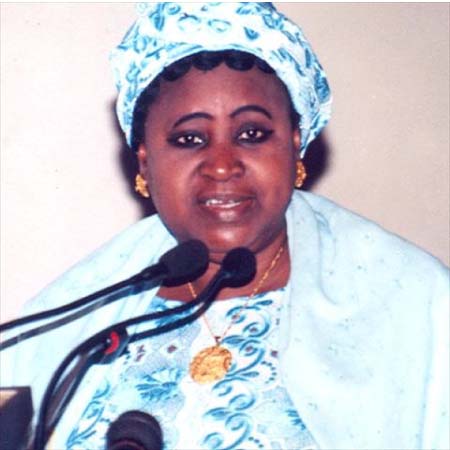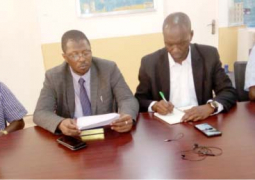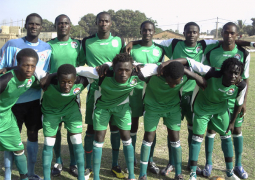
“Afterall, they constitute more than half the population. Reducing or eliminating inequalities in society is, therefore, critical to improving the socio-economic well-being of men, women and the rest of society”, declared the Vice President and minister for Women’s Affairs, Isatou Njie Saidy.
In her message to the nation to mark International Women’s Day (IWD), observed world-wide on Saturday March 8, the Gambia’s minister for women’s affairs said gender inequalities can be manifested in, among others, access to social services, employment, educational opportunities, exercise of basic human rights, control over productive resources, institutional support services, and freedom to make informed choices and decisions.
“Addressing gender inequality and inequity requires taking a holistic rights-based approach to development, by all stakeholders”, she continued, adding that against this backdrop, the Gambia government recognizing the potentials of all, including women and girls, has since given high priority to gender equality and the empowerment of women and girls.
“This is clearly manifested in the positions of responsibility being held by women in the country, and the myriad of development interventions geared towards improving the status of women and girls”.
Isatou Njie Saidy cited efforts to achieve universal access targets in the health sector, and speeding up progress on free maternal and child health services in the country.
Consequently, according to the Gambia’s 2013 demographic and health survey, the maternal mortality rate drop from 730 per 100,000 live births in 2001 to 434 per 100,000 live births in 2013. Infant mortality dropped from 92 per 1,000 to 34 per 1000 in the last two decades.
“Overall, progress on the status of women and girls has been registered in all sectors of society, and of the economy”, she went on, and that “Gambian women have never been in a stronger position”, further stating that women and youths “are living the change in this country, and shaping the economic, social and political landscape”.
She also spoke of greater recognition of gender in legislation and policy frameworks, such as the gender and women’s empowerment policy 2010-2020; the women’s Act of 2010, the sexual offences and domestic violence bills which were enacted in 2013, the children’s Act of 2005, the trafficking in persons Act of 2007, and so on.
The Gambia signed global conventions, protocols and agreements, “that we are adhering to, that relate to women and girls”, the women’s affairs minister asserted.
The UN system resident coordinator in The Gambia, Josefa Marata, read the statement of UN secretary-general Ban Ki Moon, who said in 2014 IWD “is highlighting the importance of achieving equality for women and girls, because it is a matter of fundamental human rights, and progress in many areas depends on it”.
Countries with more gender equality have better economic growth…and the evidence is clear – equality for women means progress for all”, declared Ban Ki Moon.
“This simple truth must be central as we work to accelerate progress towards the Millennium Development Goals by next year’s deadline, and craft an agenda for the years beyond 2015.”
He said important gains have been made in access to primary education for girls, and political representation by women. But progress remains far too slow and uneven.
A baby girl born today will still face inequality and discrimination, no matter where her mother lives. We have a common obligation to ensure her right to live free from the violence that affects one in three women globally; to earn equal pay for equal work; to be free from discrimination that prevents her from participating in the economy; to have an equal say in the decisions that affect her life; and to decide if and when she will have children, and how many she will have.
Ban Ki Moon’s message to all women and girls on the planet on the occasion of IWD 2014 is this: “Realising human rights and equality is not a dream. It is a duty of governments, the United Nations and every human being.” His message to men and boys is: “Play your part” to ensure women and girls, “your mothers, sisters, friends and colleagues” can reach their full potential; together let us work for women’s rights, empowerment and gender equality, as we strive to eliminate poverty and promote sustainable development.
“Equality for women is progress for all”, he declared.
European Union foreign affairs chief Catherine Ashton in her statement said, “women have made great advances, but there is still a long way to go to achieve a world free from gender-based discrimination.
“Equal access to education and health services and the chance to become a full participant in political life is everyone’s right and an essential ingredient of democracy. Long-term stability and development can only be achieved if violence and discrimination against women are addressed.
She announced that “the European Union remains committed to the promotion of gender equality and the empowerment of women.
“About 200 projects and initiatives are currently funded by the EU around the world which aim to help women benefit from education and healthcare, to work and live free from violence and discrimination and to assume their rightful place in society.
“The rights of all women and girls are a universal priority for the EU and this is reflected in the current discussions on the post-2015 framework for poverty eradication and sustainable development.
“Where women prosper, societies prosper; where women suffer, so do the societies they live in”.



